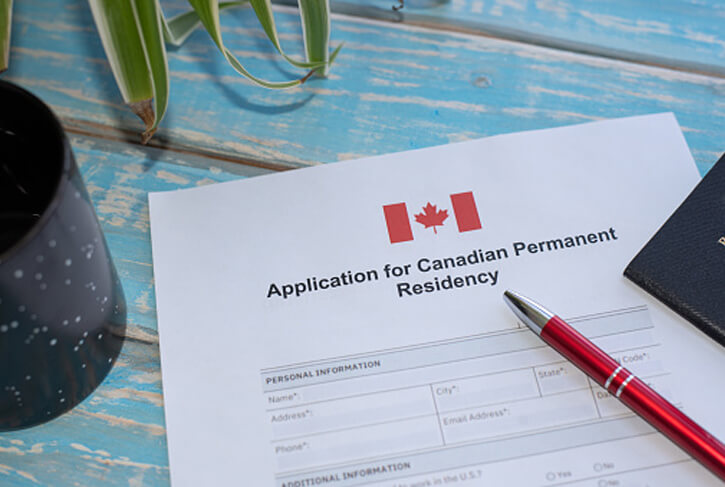IRCC eligibility requirements for the RNIP

A community-driven program, Canada’s Rural and Northern Immigration Pilot [RNIP] has been specifically designed for spreading the benefits of economic immigration to the smaller communities in Canada. The RNIP creates a pathway to Canada’s permanent residence for skilled foreign workers that have the intention to work and live in any of the communities participating in the Pilot.
The Pilot was announced in a Press Release – “Eleven communities to attract newcomers to support middle-class jobs” – dated June 14, 2019.
A basic 4-step process for applying for the RNIP
STEP 1: Meeting eligibility requirements that are –
|
| STEP 2: Finding an eligible job with an employer in a participating community |
| STEP 3: Once a job offer has been secured, submission of an application for a recommendation to the community |
| STEP 4: If community recommendation received, applying for Canada permanent residence |
Here, we shall see the IRCC eligibility requirements for the RNIP.
IRCC eligibility requirements for the RNIP
CRITERIA 1: Have either –
in the specific community. |
| CRITERIA 2: Language requirements, to be met or exceeded |
| CRITERIA 3: Educational requirements, to be met or exceeded |
| CRITERIA 4: Proof of funds |
| CRITERIA 5: Intention to live in the community |
| CRITERIA 6: Community-specific requirements to be met |
If meeting all the requirements above-mentioned, the immigration candidate can begin the process by looking for an eligible job in the community that they intend residing and working in.
Work experience
By “qualifying work experience” is implied 1 year of uninterrupted work experience – a minimum of 1,560 hours – in the previous 3 years.
For the calculation of hours of work experience, hours worked full-time as well as part-time will be counted. While the required work hours have to be in 1 occupation, the work hours can be while working with different employers.
The work hours have to be spread across a minimum of 1 year’s duration.
While the working hours can be either within or outside Canada, due authorization to work must have been there if the work experience is from within Canada.
Hours spent towards self-employment, volunteer work, or unpaid internships will not be taken into consideration.
As per IRCC, the work experience of the immigration candidate applying for the RNIP must include “most of the main duties and all the essential duties” that are listed in their National Occupational Classification [NOC]. Activities listed in the lead statement of their NOC must also be included in their work experience.
International students
Exemption from work experience is given to international candidates that have graduated with –
A credential* from a post-secondary program for a duration of 2 years or above AND
OR A master’s degree or higher AND
|
Note. – By ‘credential’ here is implied a diploma, degree, certificate or trade or an apprenticeship from a Canadian publicly funded institution in the recommending community. Valid temporary resident status for the duration of studies is also required.
An international student CANNOT apply for the RNIP in situations wherein their credential is from a program which –
Involved studying English/French for more than half of the program
Distance learning comprised more than half of the program
A fellowship/scholarship awarded requiring the student to return to their home country for applying what was leaned by them
Language requirements
The immigration candidate must meet the minimum language requirement – either Canadian Language Benchmarks [CLB] for English or Niveaux de compétence linguistique canadiens [NCLC] for French – as per their specific NOC category as applicable to the job offer in the community.
The minimum language requirements for each of the NOC categories –
| NOC Category | Minimum language requirement |
|---|---|
| Skill Type 0 [zero]: Management jobs For example, restaurant managers. | CLB / NCLC 6 |
| Skill Level A: Professional jobs For example, doctors. | CLB / NCLC 6 |
| Skill Level B: Technical jobs For example, plumbers. | CLB / NCLC 5 |
| Skill Level C: Intermediate jobs For example, long-haul truck drivers | CLB / NCLC 4 |
| Skill Level D: Labour jobs For example, fruit pickers. | CLB / NCLC 4 |
Test results – not more than 2 years old at the time of applying – from a designated language test will have to be provided.
Educational requirements
In terms of educational requirements as part of the IRCC eligibility for the RNIP, a candidate must have –
| A high school diploma from Canada
OR An Educational Credential Assessment [ECA] report testifying the completion of a foreign credential equivalent to Canadian high school |
Note. – The ECA report must not be more than 5 years old at the date of applying.
Settlement funds
The candidate must prove that they have enough money as settlement funds for supporting themselves as well as other family members [even if they are not coming to Canada with them] for settling in the community.
Proof of funds will not be required when the candidate is already legally working in Canada at the time of applying.
Currently, the amount required for a family of up to 4 members as settlement funds –
| No. of family members | Funds required |
| 1 | CAD 8,922 |
| 2 | CAD 11,107 |
| 3 | CAD 13,654 |
| 4 | CAD 16,579 |
Intention
To be eligible for a community recommendation under the RNIP, the immigration candidate must plan on living in that community.
Community-specific requirements
Each of the communities participating in the RNIP has its own specific requirements.
The attraction and retention of newcomers with the required skills are equated to a recipe for success for the rural and northern communities in Canada.
A similar immigration pilot – the Atlantic Immigration Pilot Program [AIPP] – has been tested in Atlantic Canada, revealing tremendous results for the newcomers as well as Canadians.

